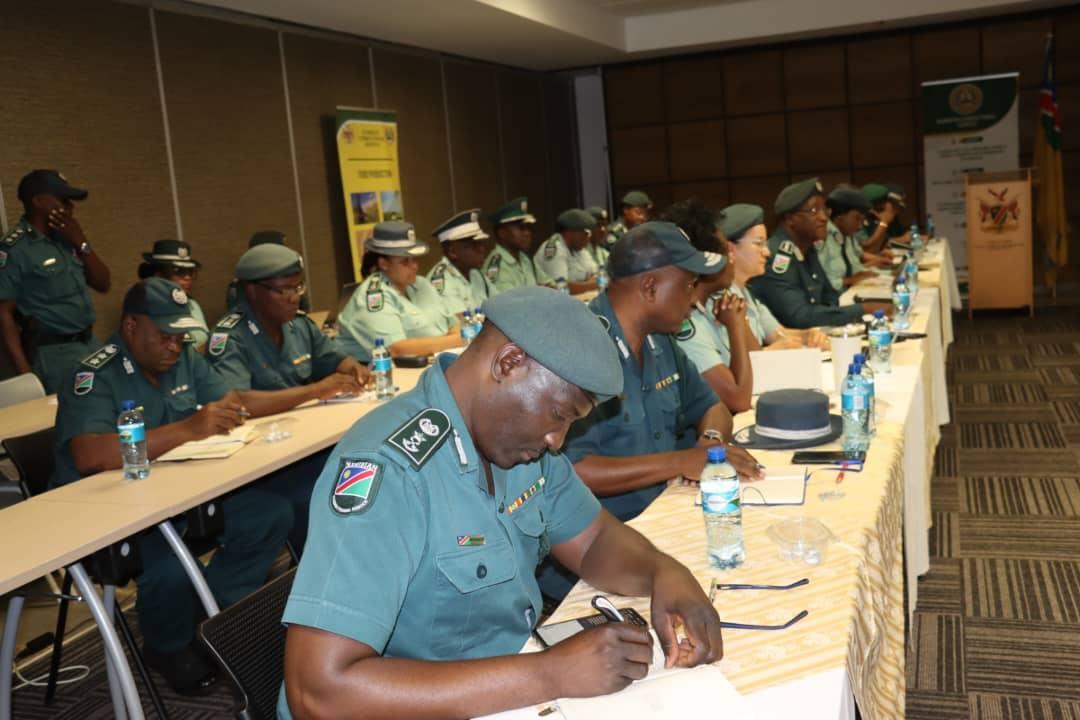Africa-Press – Namibia. The Namibian Correctional Service (NCS) has been praised for its resilience and quiet excellence despite working under tough conditions marked by staff shortages and limited resources.
This came during yesterday’s visit by the National Assembly Standing Committee on International Relations, Defence and Security, led by James Uerikua.
Commissioner General Rafael Hamunyela said Namibia’s correctional facilities currently hold 4 688 inmates, including 4 544 men and 144 women.
Of these 4 545 are sentenced prisoners, while 143 are awaiting trial. He stated that Namibia generally avoids keeping remand prisoners in correctional centres unless they pose a serious security threat.
Among the inmates, there are 12 juveniles and 64 persons living with disabilities, while 671 offenders with mental health conditions are housed under special care.
“We have a duty to treat everyone with dignity while maintaining safety and order,” Hamunyela said.
The Commissioner revealed that the NCS operates with 3 002 officers, far below the approved establishment of over 10 000, creating a 70% staffing gap. Despite this, he said officers continue to uphold discipline and professionalism.
“We are a small team with a big responsibility, but our commitment remains unshaken,” he noted.
To manage risk, recruitment follows an 80:20 male-to-female ratio, a policy meant to address gender-sensitive deployments.
Namibia’s 16 correctional facilities are grouped into three levels, from large centres such as Windhoek, Hardap and Divundu, to smaller ones like Omaruru and Swakopmund.
Each provides healthcare not only for inmates but also for nearby communities.
Hamunyela highlighted funding constraints, saying the NCS received only N$5 million during the mid-term budget review, earmarked for a food production project in Tsumeb.
Similar agricultural projects in Katima Mulilo and Kayengona are being expanded to boost self-reliance and train inmates in farming skills for life after prison. He appealed for danger and professional allowances for officers who work in high-risk environments, emphasising the emotional and physical toll of the job.
In his address, James Uerikua commended the NCS for transforming inmates into responsible citizens and keeping facilities in good condition despite limited resources.
“This visit is not about pointing fingers but building understanding,” he said. “Oversight must come from knowledge, not assumptions,” he added. Uerikua described the Divundu Correctional Facility as a model of food self-sufficiency, saying it could one day supply other prisons and surrounding communities.
He urged NCS to explore income-generating initiatives such as guesthouses for visitors to support rehabilitation programmes.
He also touched on the gender gap within the NCS, encouraging more men to study psychology and rehabilitation to complement the upcoming Mental Health Bill, which aims to strengthen mental health support in Namibia.
Uerikua called for stronger collaboration between ministries, especially with the agriculture minister, to share equipment and avoid duplication of resources. “Government is one body – each institution is a vital limb working for the same purpose,” he said.
He ended his remarks with words of encouragement to correctional officers. “You are the silent heroes who keep the nation safe. Continue to serve with pride. The sky is the limit,” he said.
For More News And Analysis About Namibia Follow Africa-Press






